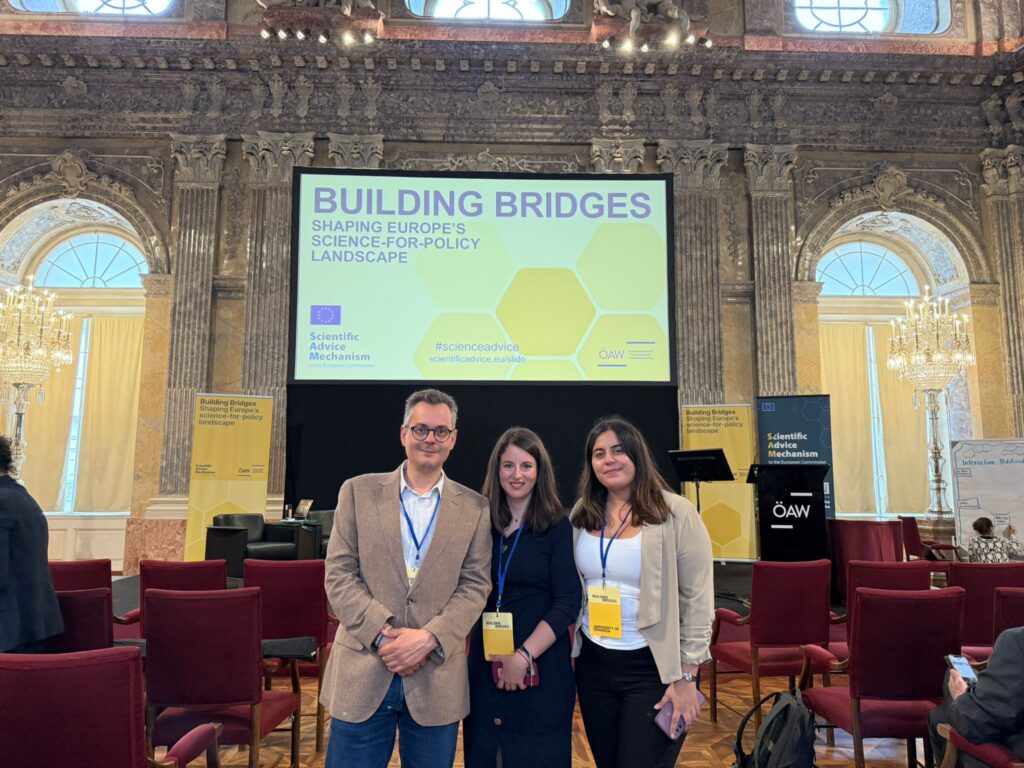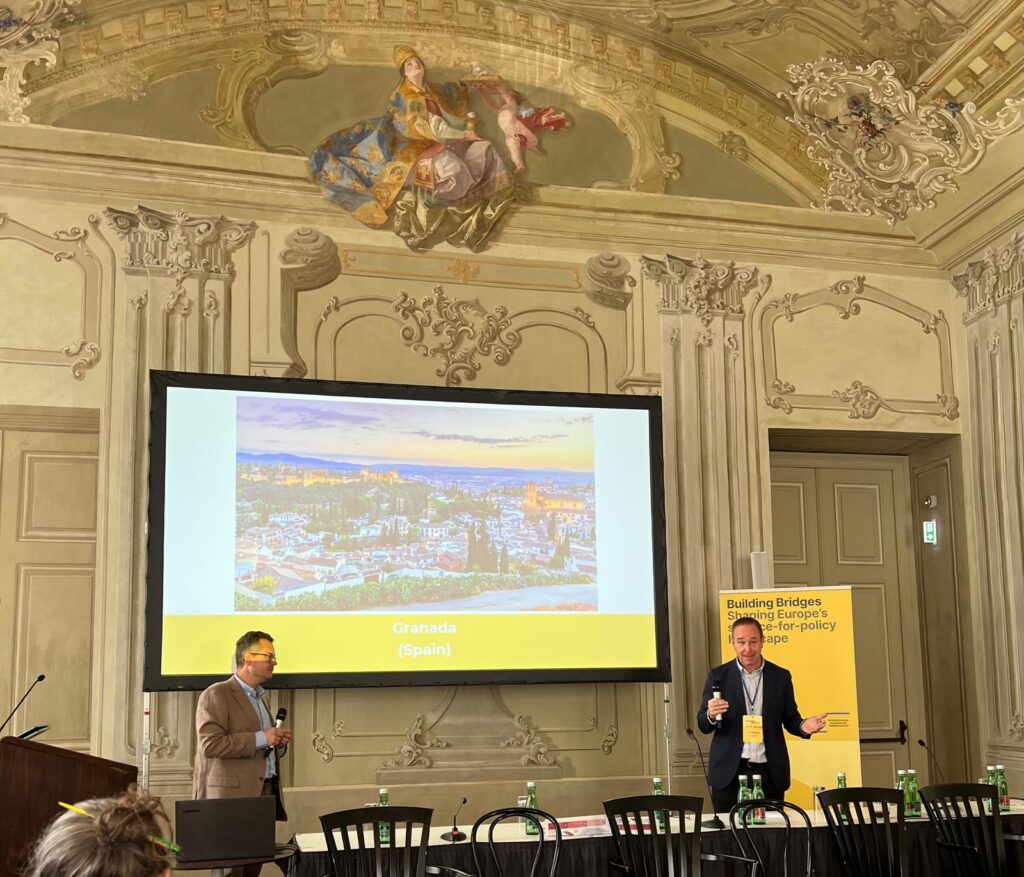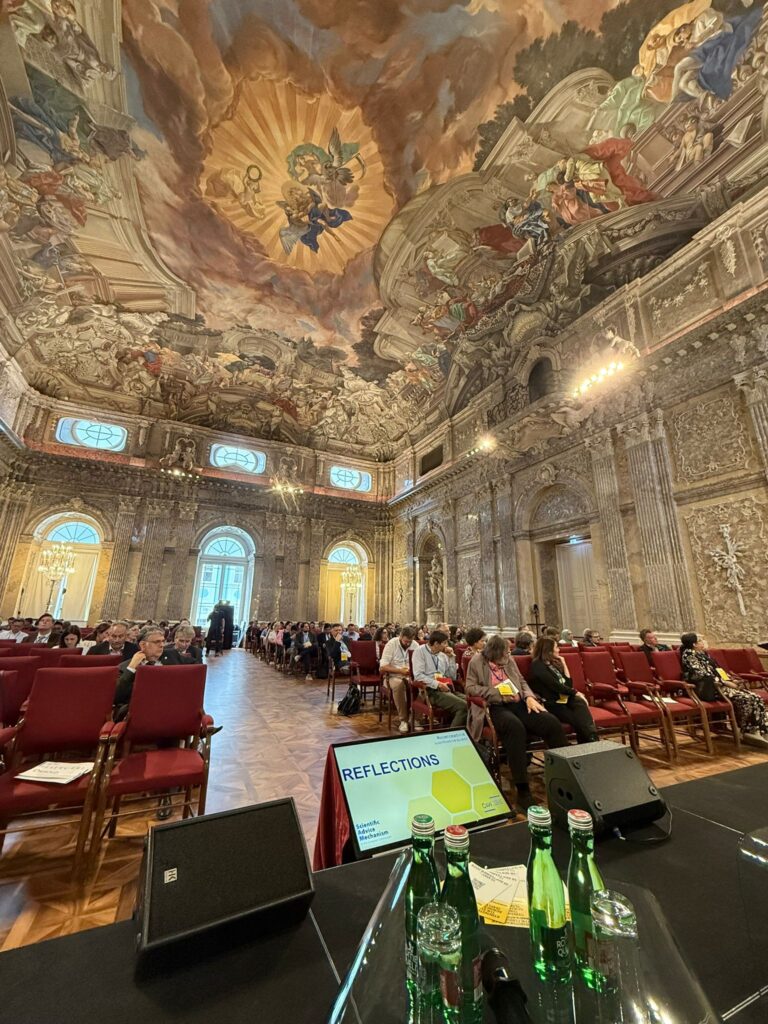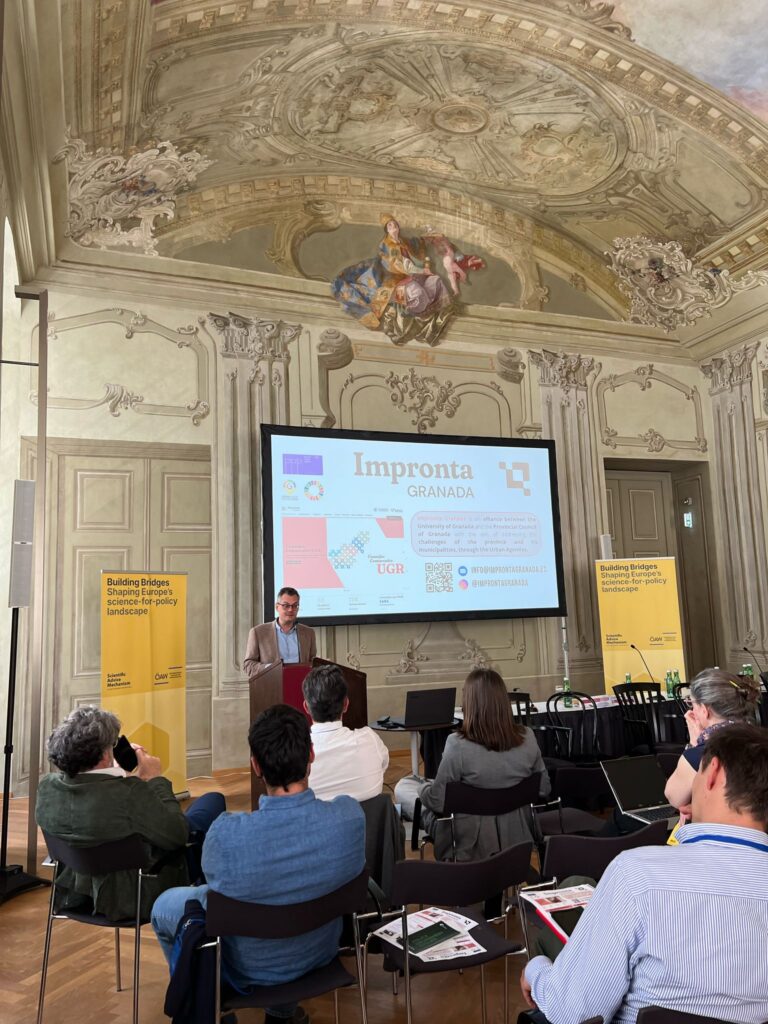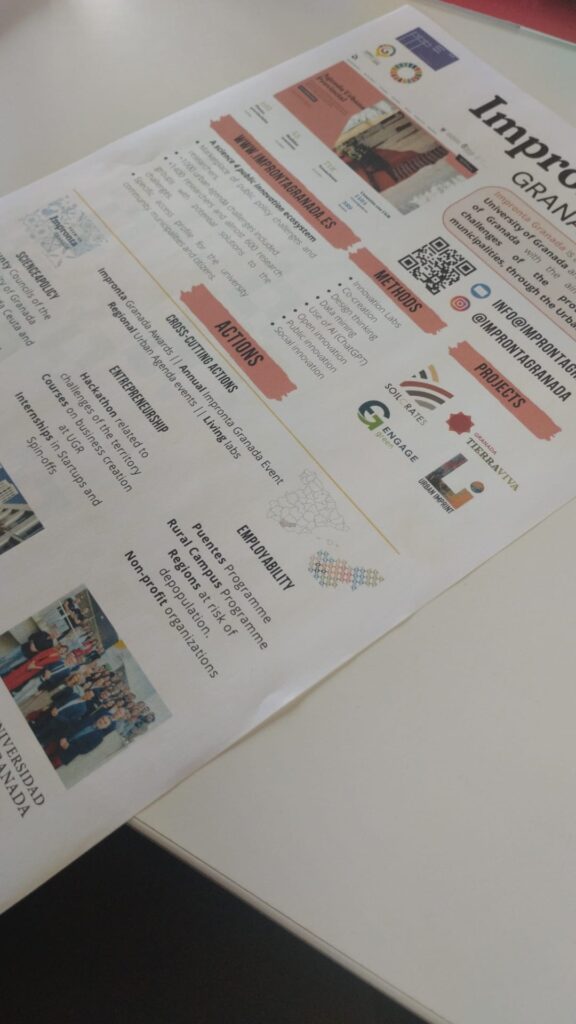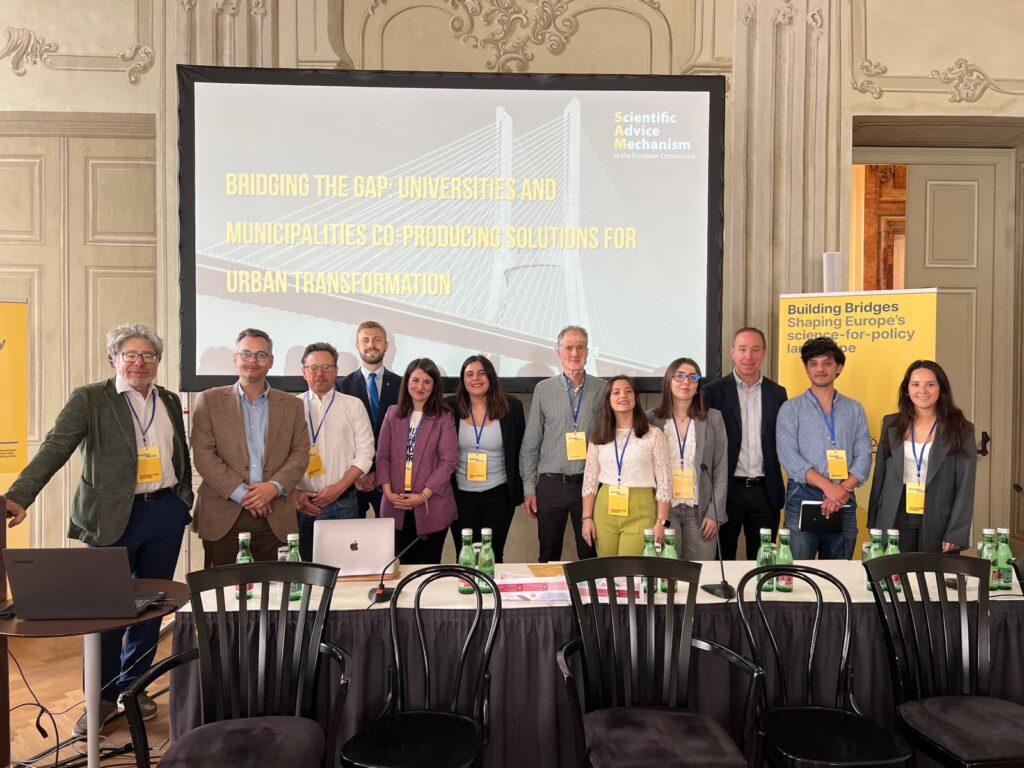Actividad en la que participa Granada Tierra Viva, living lab del proyecto SOILCRATES, financiado por el programa Horizonte Europa de la Unión Europea.
The University of Granada has actively participated in the international conference “Building Bridges: Shaping Europe’s Science-for-Policy Landscape” organized by the Scientific Advice Mechanism of the European Commission (SAM) and held on May 26 and 27 at the Austrian Academy of Sciences in Vienna.
During the second day, the University of Granada coordinated the parallel session titled “Bridging the gap: universities and municipalities co-producing solutions for urban transformation” which focused on the co-creation of innovative solutions between universities and local governments to address Europe’s major urban challenges, such as socioeconomic development, depopulation, digital transformation, and climate change.
The session featured a presentation by Esteban Romero Frías, Vice-Rector for Social Innovation, Employability, and Entrepreneurship at the University of Granada, who introduced the approach developed by the UGR regarding public innovation, participatory governance, and the linkage between science and public policy through the Impronta Granada alliance, a collaboration between the University and the Provincial Council. Among other initiatives within this framework, special mention was made of the UGR County Councils, promoted by Medialab UGR, scientific advisory programs for administrations, and the citizen science program in the territory. Additionally, the occasion was used to present the Granada Tierra Viva Living Lab, funded by the European Union’s Horizon Europe program through the SOILCRATES project.
Alongside the UGR, the Provincial Council of Granada played a leading role, represented by José Mateos Moreno, Director General of Employment and Sustainable Development. Both parties engaged in a dialogue on the role of universities and local governments in territorial transformation. During this exchange, Mateos stated: “The challenge of transforming our territories cannot be addressed without universities; we need these common spaces to think and act together.” Likewise, Romero emphasized: “The collaboration between the University of Granada and the Provincial Council of Granada is a real example of how academia and local government can work together to tackle territorial challenges, an experience that will be scaled to the Andalusian level and which we believe can serve as a reference at the national and European levels.” Both agreed on the necessity of strengthening these collaborative spaces to face present challenges with shared solutions.
Participating universities and partner institutions from the Erasmus+ Urban Imprint project included the University of Aveiro, the University of Graz, and the École Nationale Supérieure d’Architecture de Paris-La Villette, as well as the Ca’ Foscari University of Venice, the University of Olomouc, and the University of Vic – Central University of Catalonia, members of the EngageGreen project consortium. The University of Granada coordinates the former project and is a partner in the latter.
This dialogue on social innovation and territorial transformation positions Granada as a reference point within the European sphere. The University of Granada’s presence at this international forum consolidates its role as a key actor in the science-policy dialogue and as a driver of academic solutions to the most urgent social challenges.
More information about the event and its program is available here.
